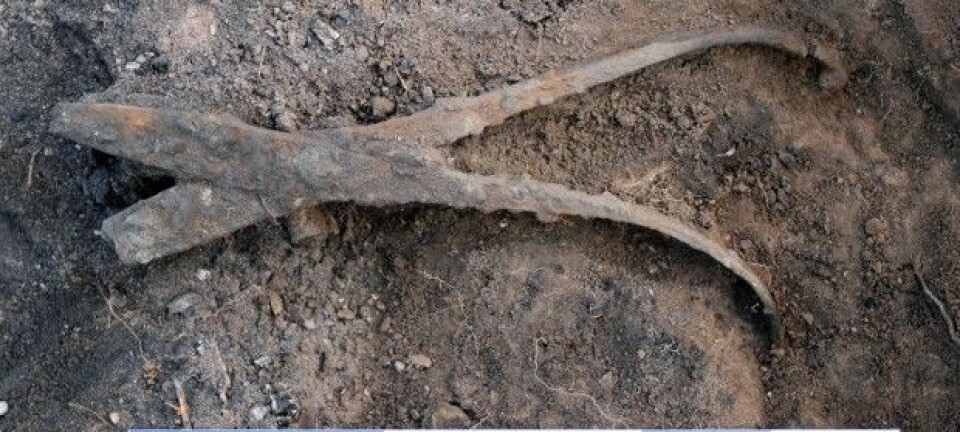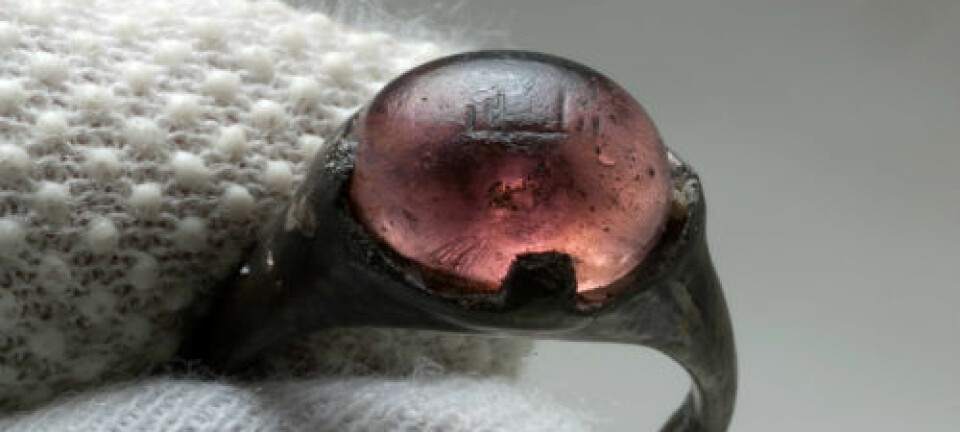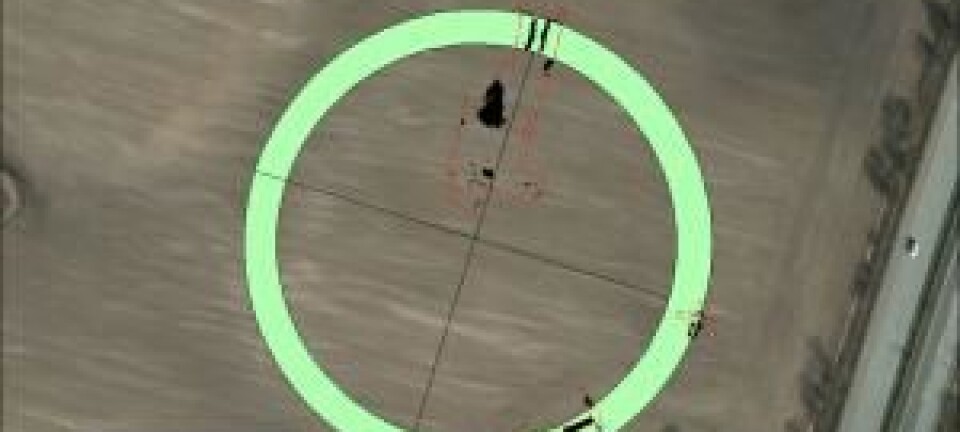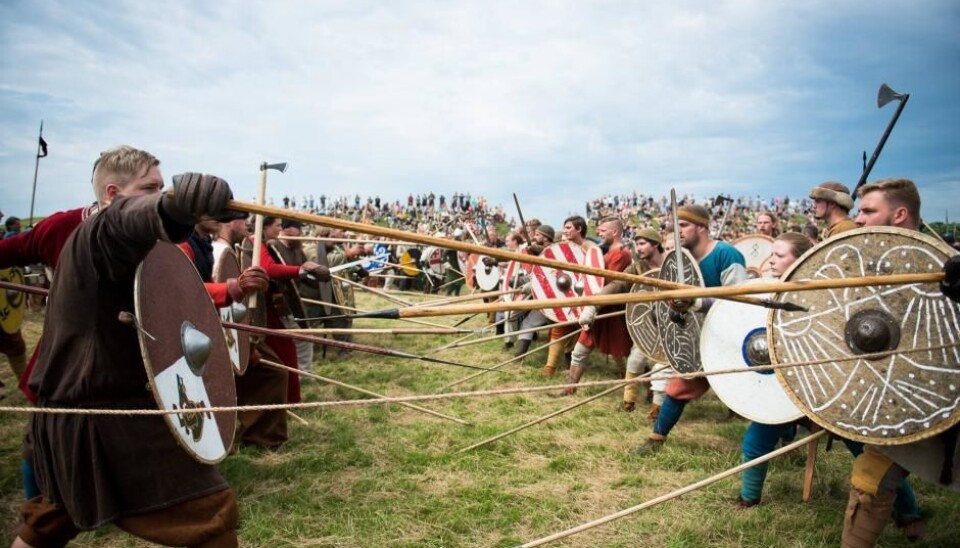
Archaeologist discovers a new style of Viking combat
Experimental archaeologists donned their armour and took to the battlefield to test out shield fighting techniques.
Sunlight bounces off the sword blade as an archaeologist clad in chain mail smashes it down upon his opponent’s shield. It strikes with a loud thud, but a swift tilt of the shield quickly defects the blow. The opponent is safe, for now.
Playing through many more variations of such combat scenarios has helped combat archaeologist Rolf Warming, University of Copenhagen, Denmark, to “rediscover” Viking fighting techniques.
Wearing 12 kilos of armour, Warming allowed himself to be attacked by a professional martial arts instructor to figure out how the Vikings used their shields to fend off attacks.
“It turns out that the Vikings may have used their shields much more actively than previously thought,” says Warming, who has been studying shield construction and Viking fighting techniques as part of his master’s thesis on the martial practices of the Viking Age.
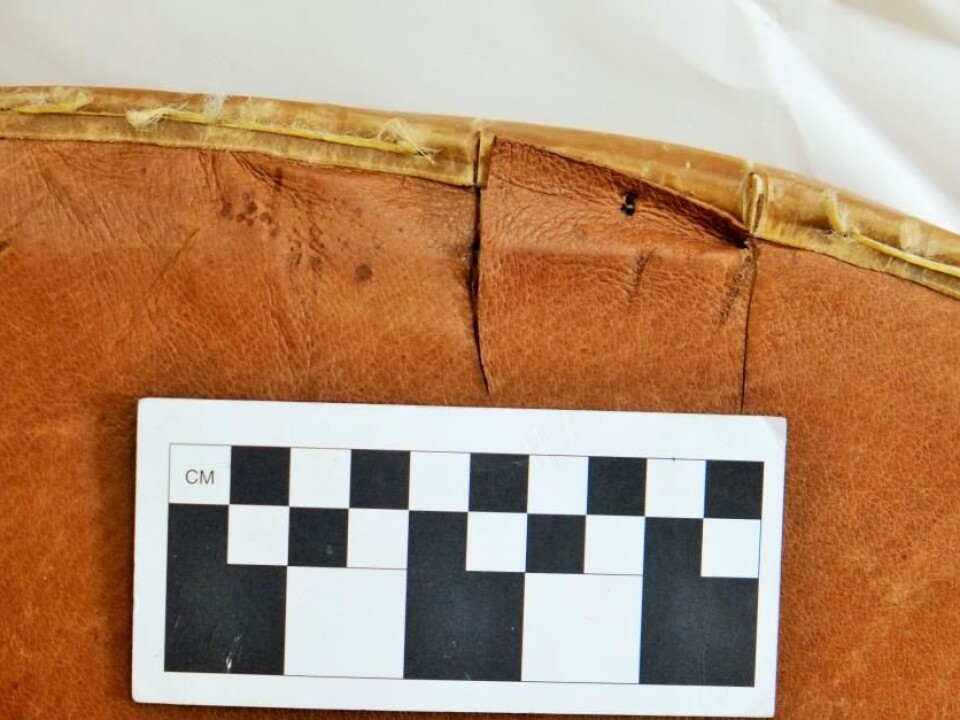
It is the first time that Viking fighting techniques have been scientifically tested using sharp swords and realistic shields, he says.
Read More: ’Twas dangerous to insult a Viking
Archaeologist took a sword to the head
Warming’s methods were pretty brutal, but caused some initial nervousness.
“It was fun but I was also a little nervous because we had to really hit hard, with both force and intent, for it to be realistic,” says Warming.
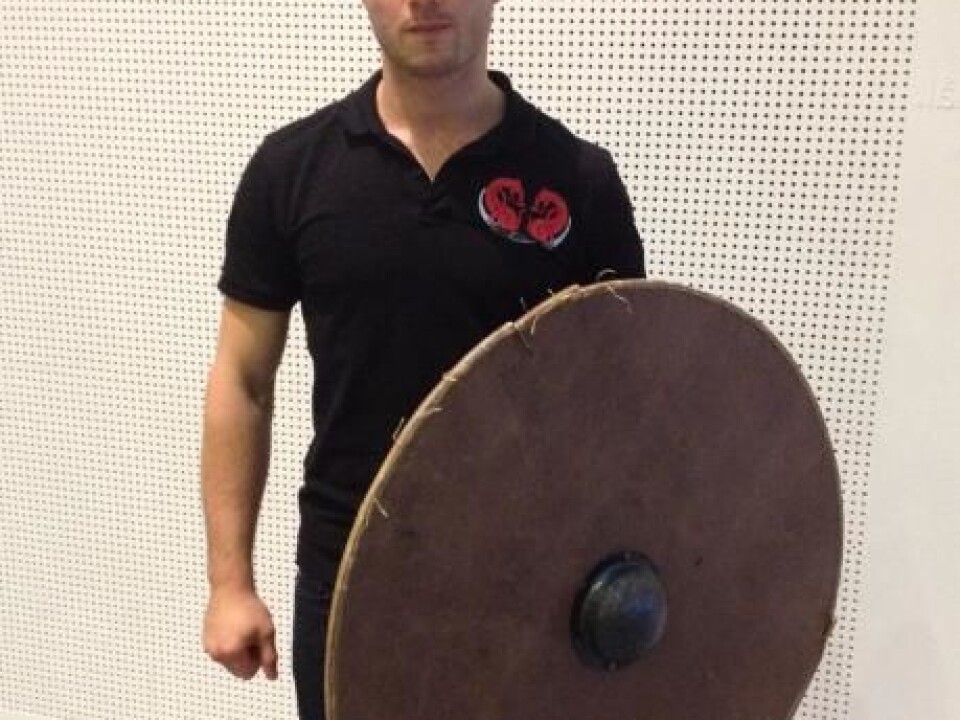
During the experiment, Warming took a hit on the head. Fortunately he was wearing a helmet and the event only served to strengthen his theory.
“It happened when I was was using the shield in a passive way. This illustrates the futility of passive shield use and suggests that they didn’t use the shield in that way,” says Warming.
See how Warming tested the shields in the video below.
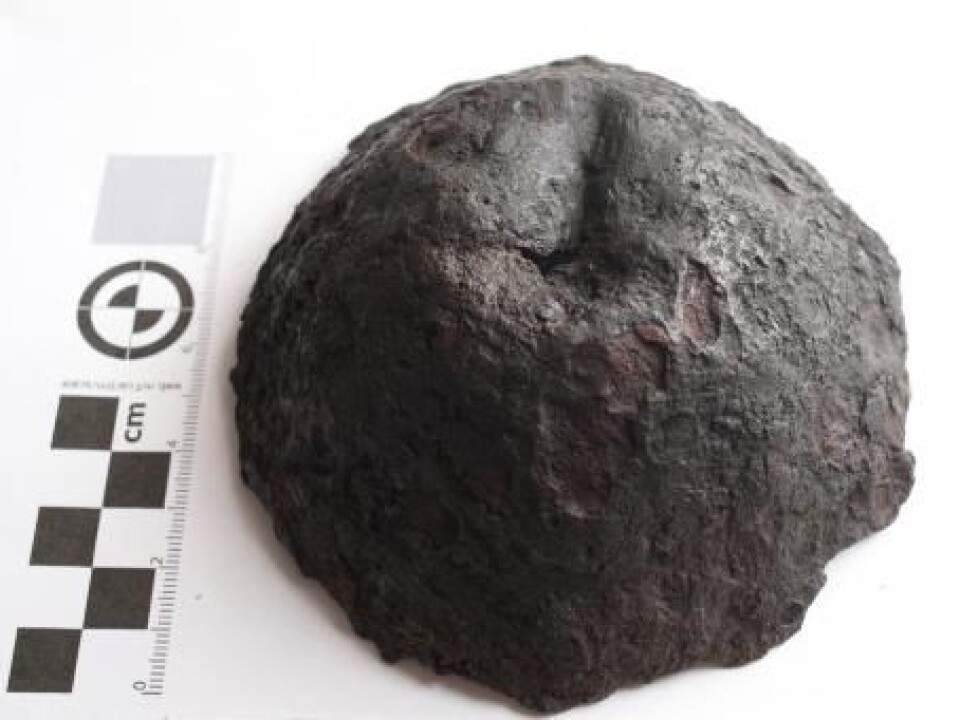
In the name of science, experimental archaeologist Rolf Warming donned armour, shield, and sword and discovered a new way to fight (Video: Rolf Warming, Combat Archaeology)
Shields used more actively than previously thought
Warming produced a Viking shield known as a “round shield” for the experiment. The design was based on various archaeological discoveries throughout Denmark, Norway, and Sweden.
The shield is approximately one metre in diameter and made of pine planks, covered in treated pig leather, and trimmed in ox rawhide. On top of that, it has a whole lot of battle scars.
“The deep cut here on the edge is from when I used the shield as passive protection. The shield clearly worked better when I used it more actively,” he says.
This observation led to one of the main conclusions of Warming’s thesis: the Vikings may have used their shields to actively fend off blows. Otherwise, they would have quickly broken, he says.
Warming does not suggest that there was one single fighting style used by all Vikings. But this active technique was probably an important aspect of their fighting repertoire, he says.
Read More: Viking movie will be entirely in Old Norwegian
Functioned almost as a weapon itself
Active shield use means that the Vikings probably not only hid behind the shield, but also used it actively to parry and strike their opponent.
Warming tested seven different shield-sword scenarios. He switched shield positions from a crooked angle and a right angle, and switched between different variations of active and passive postures. Afterwards, he analysed the shields to see which technique worked best.
“When I actively moved forward with the shield at both angles, it seemed almost like a weapon, because you could both avoid the battle and also deliver forceful blows to the enemy with the shield edge,” he says.
No blood was shed during the experiment, but certain blows may well have been fatal if it had been a real Viking battle.
Read More: What Vikings really looked like
Need to review current knowledge of Viking combat
Along with the experimental shield tests, Warming also studied the literature on Viking combat techniques and analysed remains of past shields collected from sites around what was then the Danish territory.
Based on this, Warming concluded that Vikings had used their round shields almost as actively as their swords in combat.
It is a strong and well-founded conclusion, says archaeologist Henriette Lyngstrøm, associate professor at the University of Copenhagen, Denmark, who supervised Warming’s project. She is “incredibly impressed” with his work.
“We’ve never seen the Viking round shields as something that they used actively in battle. But based on Rolf’s studies, we can now say how the Vikings used them and no longer base it on assumptions,” she says.
Read More: Don’t underestimate Viking women
Mysterious shield damage can now be explained
The results are in line with previous research, and the findings are undoubtedly important for other archaeologists, says Lyngstrøm.
“It solves a problem for us archaeologists in connection with investigations of shields,” she says.
For the most part, only the shield boss remains, that is, the metal dome that sits in the middle of the shield. And they often have some nicks and damage that archaeologists have not been able to explain previously.
“But knowing that shields have been used actively to ward off blows, it suddenly makes sense,” says Lyngstrøm.
Read More: Unique jewellery from the British Isles found in Danish Viking grave
Results are consistent with experience
Archaeologist Anne-Christine Larsen is interested in the new results. Larsen is the chief investigator at the Trelleborg Viking castle, part of the National Museum of Denmark.
She and her colleagues have often discussed Viking fighting styles and techniques, and often have to make some assumptions about it.
“Many of the warriors in Trelleborg’s fighting groups and in our annual re-enactment of a Viking battle use their shields actively. So it’s fantastic to finally have some scientific evidence that matches these observations,” says Larsen.
Read More: What colour did the Vikings paint their houses?
Controlled experimental archaeology
The conclusions are particularly robust, because they include real data from an actual test of the shield, says Larsen.
“It’s not enough to just write about it, you need to actually test these hypotheses in practice. This is what he’s done and it’s led to some really interesting results that we can certainly use at Trelleborg,” she says.
Lyngstrøm is also a big fan of this kind of experimental archaeology.
“He’s combined the best of two worlds by putting himself in the actual situation and being beaten with swords. That’s what experimental archaeology is all about,” says Lyngstrøm.
Read More: Replica Viking ship will recreate Norse voyages in Greenland
Next stage: experiment with axes and arrows
Warming is not yet done with the violent world of experimental Viking battle techniques.
He now plans to expand the shield experiment and find out exactly how much this piece of weaponry could withstand during a battle.
“I hope to get funding to conduct similar studies, but with axes and arrows,” he says.
-------------
Read the Danish version of this article on Videnskab.dk
Translated by: Catherine Jex
